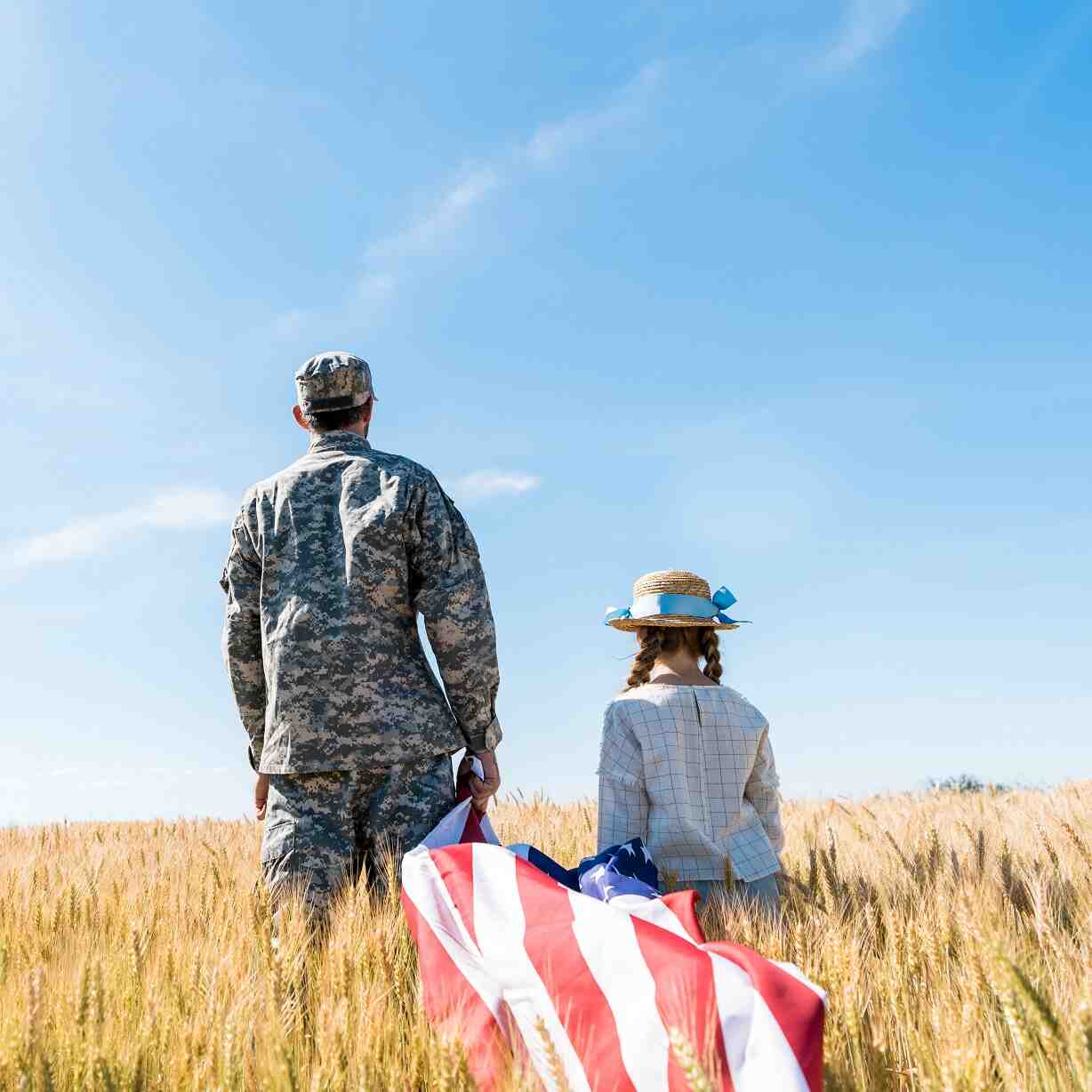How Military and Veteran Students Can Benefit from FAFSA
For military members, veterans, and their families, higher education is often a priority, but the financial burden of tuition can be daunting. Fortunately, the Free Application for Federal Student Aid (FAFSA) offers a vital resource to help reduce those costs and make education more accessible. While many military and veteran students are eligible for specialized benefits through programs like the GI Bill, FAFSA can still play a crucial role in supplementing those benefits, providing access to additional federal aid, and ensuring the overall affordability of a college education. Here’s how military and veteran students can benefit from FAFSA.
1. FAFSA for Military Dependents and Spouses
Military and veteran students aren’t the only ones who benefit from FAFSA. Dependents and spouses of military members may also be eligible for financial aid. This is particularly important for those who are using benefits like the Post-9/11 GI Bill, which may not cover all expenses such as room and board, or for those who may need additional help covering costs while they attend school.
Filling out FAFSA can unlock a variety of federal aid options for spouses and dependents, including:
- Pell Grants: This is a need-based federal grant that doesn’t have to be repaid. If you are a military spouse or dependent, you may qualify for Pell Grants, which can help cover tuition and other educational costs.
- Federal Student Loans: Dependent and spouse applicants can access federal loan options, such as Direct Subsidized Loans (for undergraduate students) and Direct Unsubsidized Loans, which offer lower interest rates and more favorable repayment terms than private loans.
- Federal Work-Study: Some military dependents and spouses may qualify for work-study programs, allowing them to work part-time while attending school to offset living and educational costs.
2. The Impact of Military and Veteran Benefits on FAFSA
When completing the FAFSA, military and veteran students need to report their financial information, but it’s important to understand how military and veteran benefits impact the process. For example:
- GI Bill Benefits: Although GI Bill benefits help cover tuition and fees, they are not considered taxable income and do not need to be reported on the FAFSA. However, students must still report any other forms of income, such as from work, when completing the application.
- Veterans’ Disability Payments: Disability payments from the Department of Veterans Affairs (VA) are typically not counted as income for FAFSA purposes. This ensures that veterans and their families aren’t penalized by receiving disability compensation.
- VA Education Benefits: If you’re using VA benefits like the Post-9/11 GI Bill or the Montgomery GI Bill, these benefits are not counted as income when you apply for FAFSA. This can work to your advantage, as these benefits won’t reduce your eligibility for need-based financial aid.
- Combat Pay: If you are a service member and you receive combat pay, it is also not counted as income for FAFSA purposes. This is important to remember, as combat pay can significantly increase your overall earnings, but it won’t affect your financial aid eligibility.
3. Special FAFSA Considerations for Active Duty Service Members
Active duty military members may have unique circumstances when filling out their FAFSA. For example:
- Eligibility for Independent Student Status: Active-duty service members are typically classified as independent students on the FAFSA, which means they do not have to report parental income or financial information. This is especially helpful for students who may have been financially independent for an extended period while serving in the military.
- Timing of FAFSA Submission: If you’re an active-duty service member, you might have to work around deployment schedules or other military commitments when completing your FAFSA. However, military service members have special accommodations that allow them to submit their FAFSA after the typical deadline if they’re unable to meet the deadline due to their service commitments. It’s important to check with your school’s financial aid office to ensure you submit the application as soon as possible.
- Special Circumstances: Active duty service members may encounter life circumstances that affect their financial situation, such as being stationed overseas or facing other challenges. In such cases, military students should reach out to the financial aid office to explain their situation, as it may be possible to receive special consideration for aid.
4. FAFSA for Veterans and Veteran Benefits
Veterans, who are typically already familiar with the benefits available to them through the VA, should also fill out FAFSA to take advantage of other federal aid opportunities. While benefits like the Post-9/11 GI Bill are incredibly valuable and cover most educational costs, they don’t always cover everything, especially for graduate students or for costs like housing, books, or equipment.
Here’s how filling out FAFSA can benefit veterans:
- Federal Pell Grants and Other Need-Based Aid: Veterans who are eligible for Pell Grants can receive up to $7,395 for the 2024-2025 academic year. This grant can cover various expenses that GI Bill benefits might not, including personal living expenses, supplies, and transportation.
- Federal Loan Options: Veterans may qualify for Direct Subsidized or Unsubsidized Loans, which are available regardless of service history. These loans offer favorable terms, including lower interest rates and various repayment options, and can be used in conjunction with GI Bill benefits to cover tuition gaps or other educational costs.
- Work-Study Opportunities: The Federal Work-Study Program can also be an option for veterans. Under this program, students can earn money to help pay for education-related costs while working part-time, often in jobs related to their academic field or on campus.
5. Applying for FAFSA as a Military or Veteran Student
To apply for FAFSA as a military or veteran student, the process is very similar to the application process for any other student, with the following steps:
- Create an FSA ID: All students, including military and veteran students, need an FSA ID to complete and sign the FAFSA online. This ID is also used to access federal student aid information.
- Complete the FAFSA Form: You’ll need to fill out the FAFSA form with personal and financial information. As a military member or veteran, you will need to report your own income (and your spouse’s, if applicable), but keep in mind that GI Bill benefits and VA education assistance are not counted as income.
- Include Military Benefits in the FAFSA: When prompted to report income on the FAFSA, military students should be mindful that military benefits such as the GI Bill or disability compensation do not need to be reported. However, any income from other sources, like part-time employment, should be included.
- Submit the FAFSA: After completing the FAFSA, submit it electronically. Make sure to keep track of deadlines, and keep in mind that as a military or veteran student, you may be eligible for extended deadlines in some cases.
- Review Financial Aid Offers: Once your FAFSA has been processed, schools will send you a financial aid package that includes grants, loans, and work-study offers. Military and veteran students should review these offers to see if they need to adjust their funding sources or seek additional help.
6. Work with Your School’s Financial Aid Office
If you’re a military member or veteran, it’s always a good idea to work closely with your school’s financial aid office. The staff can help you navigate the complexities of combining FAFSA with VA benefits, assist you in understanding your financial aid package, and ensure you’re receiving all of the federal aid you’re entitled to. The financial aid office can also provide guidance on using other forms of military education benefits, like the Yellow Ribbon Program, which can help reduce out-of-pocket tuition costs for veterans.
Conclusion
Military and veteran students can significantly benefit from completing FAFSA, even if they are already receiving benefits through the GI Bill. By filling out the FAFSA, military and veteran students can access Pell Grants, federal loans, work-study opportunities, and additional funding options that can help bridge the gap between military education benefits and the full cost of education. Whether you’re active duty, a veteran, or a dependent, understanding how FAFSA works in conjunction with military benefits is key to maximizing financial aid and ensuring the affordability of your education.











